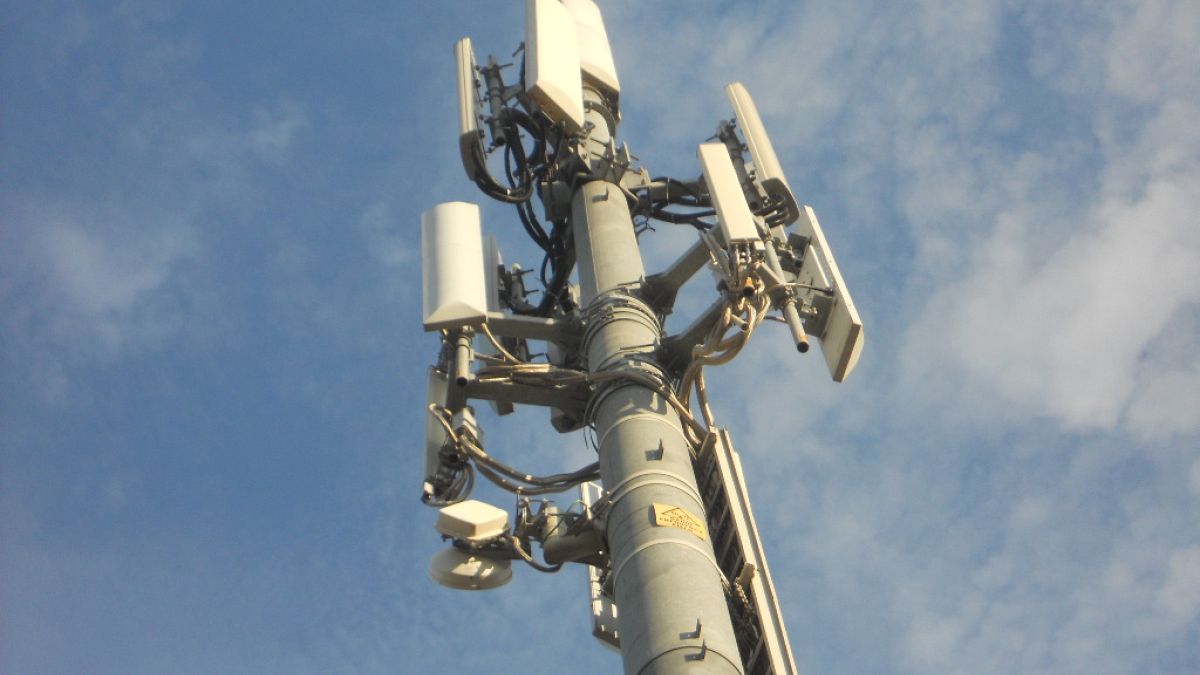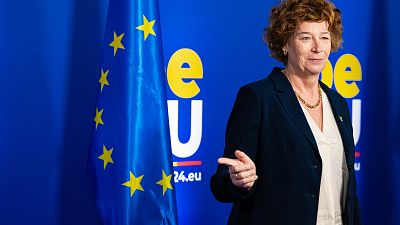The commission's whitepaper, open for consultation until June, is set to be discussed by telecom ministers in April.
EU governments are sceptical about a European Commission plan, proposed last month, to overhaul the Union’s telecom rules, according to minutes from an internal meeting seen by Euronews.
A commission whitepaper presented on 21 February sets out different policy options to ensure connectivity targets are met and seeks ways to ease the conditions for telecom companies to operate across the bloc.
The paper, which is open for consultation until June, examines how to address problems with connectivity, spectrum and investment, as new technological applications require more and more data processing, storage, and transmission and therefore an upgrade in infrastructure.
According to the internal minutes, however, most capitals have questions about whether a new telecom law, to be formally proposed under the next commission mandate, is needed and wonder if spectrum harmonisation and market consolidation measures are necessary.
Member states question the need for faster and more 5G connections doubting demand for large-scale 5G use and believing that telecom companies will therefore not invest in the network deployment.
The capitals are also sceptical about updating the European Electronic Communications Code (EECC) – the bloc’s telecom law set for a review next year— which had to be transposed into national law by 2020. In addition, further spectrum harmonisation, which the commission deems necessary to meet the 5G roll-out targets, remains mostly a national competence according to the capitals .
The minutes show that some of the countries fear that the commission “focuses too much on a specific outcome [with its proposed measures] in a market that’s difficult to predict.”
“It is worrying, especially because there is no real substantiation for all this policy. As a result, the proposed policy takes on more of a political character, instead of sound policy that can be tested,” the document said.
The whitepaper is set to be further discussed during an informal meeting of telecom ministers in Brussels in April.
Investment gap
The plans, first hinted at by EU Industry Commissioner Thierry Breton last year, sparked a heated debate between the telecoms industry which argued major content providers — which use telecoms infrastructure and create traffic — should pay for network rollout, though big tech firms argue any extra fees would simply raise consumer costs.
From its inception the 27 national member states pushed back against the idea; seeing little need for regulatory intervention, and doubting the existence of an investment gap.
The commission said that reaching current Digital Decade targets for high-speed connectivity and 5G may require a total investment of up to EUR 148bn, and more additional money to also ensure full coverage of so-called transport corridors, railways and roads.
Meanwhile, national governments are far behind in reaching Union-wide connectivity goals for 2030. Euronews reported last month (23 February) that data shows that just over half (55%) of the targets are on track to be met across the board. On the roll-out of very high-capacity networks, just 11 of 23 countries seem on course to reach the required goal ensuring all the population has access to gigabit coverage and 5G networks are deployed in all populated areas.
The commission warned earlier this year (30 January) that a persistent low uptake of 5G deployment in Europe mean other technologies dependent on fast internet such as artificial intelligence will face delays in uptake.



